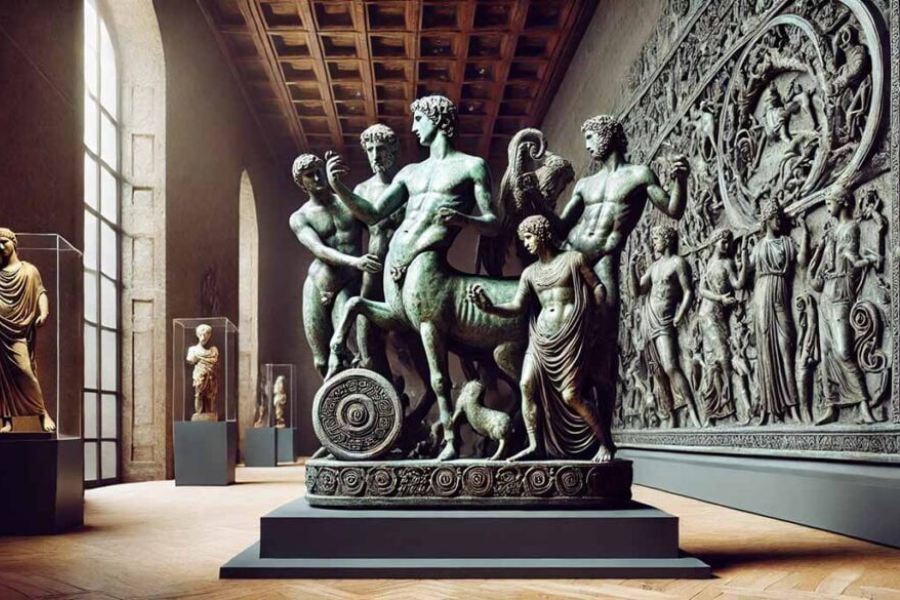Exploring the Legacy of Antiquità: A Journey Through Ancient Civilizations
One of the most fulfilling experiences in life is delving deep into history, especially when examining how ancient peoples lived, shaped their cultures, and influenced generations to come. The civilizations of the ancient Greeks, Romans, Egyptians, and Mesopotamians have left indelible marks on the world, particularly the Western world, through their art, religion, science, and philosophy. Without these contributions, our modern society would look vastly different.
In this article, we will explore the meaning of antiquità, its cultural and historical significance, and how the knowledge of these ancient peoples has been passed down through the ages, shaping the world we live in today.
What Does Antiquità Mean?
The Italian term antiquità beautifully encapsulates everything associated with ancient times, primarily referring to the periods of cultural and intellectual flourishing in ancient Greece, Rome, and Egypt. It corresponds to the broader term antiquity in English, often used to describe the classical era when these civilizations reached their cultural and economic heights.
Art and Architecture of the Ancient World
The art and architecture of ancient Greece have influenced countless generations, with their impact particularly evident during the Renaissance, often regarded as one of the greatest periods in artistic history. Iconic works such as the statues of Zeus and Athena, and architectural marvels like the Parthenon, serve as testaments to the skill and creativity of the Greeks.
The Romans also made significant contributions to the world of architecture, with monumental structures such as the Colosseum, the Arch of Constantine, and Trajan’s Column. However, the Egyptians arguably hold the title for the most awe-inspiring builders, with the Pyramids of Giza and the Great Sphinx standing as eternal symbols of their ingenuity and engineering prowess.
Books and Philosophy
When we think of ancient literature, works like Homer’s Iliad and Odyssey immediately come to mind. These epic poems are widely regarded as some of the finest literary achievements in history. Antiquity also gave rise to the world’s most influential philosophers, including Socrates, Plato, and Aristotle—thinkers whose ideas laid the foundation for Western thought.
Roman literature also deserves recognition, with masterpieces such as Virgil’s Aeneid, Ovid’s Metamorphoses, and the philosophical musings of Emperor Marcus Aurelius in his Meditations. These works continue to be celebrated for their intellectual and artistic brilliance.
Faith and Legends
The religions and mythologies of antiquity, particularly those of Greece, Rome, and Egypt, have profoundly influenced modern storytelling, religion, and culture. The myths surrounding gods like Zeus, Athena, Ares, and Osiris not only entertained ancient audiences but also shaped their understanding of morality, the natural world, and human existence.
Interestingly, elements of these ancient religious traditions influenced later monotheistic religions, such as Christianity and Islam, which adopted and adapted certain mythological motifs and rituals from their predecessors.
Technological and Scientific
While ancient civilizations may not have achieved the scientific breakthroughs of modern luminaries like Einstein or Newton, they laid crucial groundwork in various fields. Greek thinkers like Pythagoras, Euclid, Hippocrates, and Archimedes made monumental strides in mathematics, medicine, and engineering, establishing principles that continue to guide scientific inquiry today.
Similarly, the Egyptians made remarkable contributions to early Technological and Scientific , especially in their development of irrigation systems, the creation of the calendar, and the use of hieroglyphics for recording knowledge.
The Influence of Antiquità Through the Ages
The legacy of antiquità has traveled through time, passed from one civilization to another. The Greeks, in particular, had their knowledge and ideas adopted by the Romans, who in turn inspired later civilizations. A significant part of Greek knowledge was preserved and expanded upon by scholars during the Islamic Golden Age, before being reintroduced to Europe during the Renaissance and the Enlightenment.
This continuous transmission of knowledge has shaped the intellectual, artistic, and scientific development of humanity, influencing major historical periods and continuing to impact the world today.
Conclusion:
The period of antiquità remains one of the most significant and impactful epochs in human history. From the art, architecture, and literature of the Greeks and Romans to the scientific innovations of the Egyptians, this era laid the foundation for much of our modern world. Its influence can still be felt in the way we think, create, and understand the world around us—a testament to the enduring legacy of these ancient civilizations.
Keep an eye for more news & updates on Forbe Stake!






